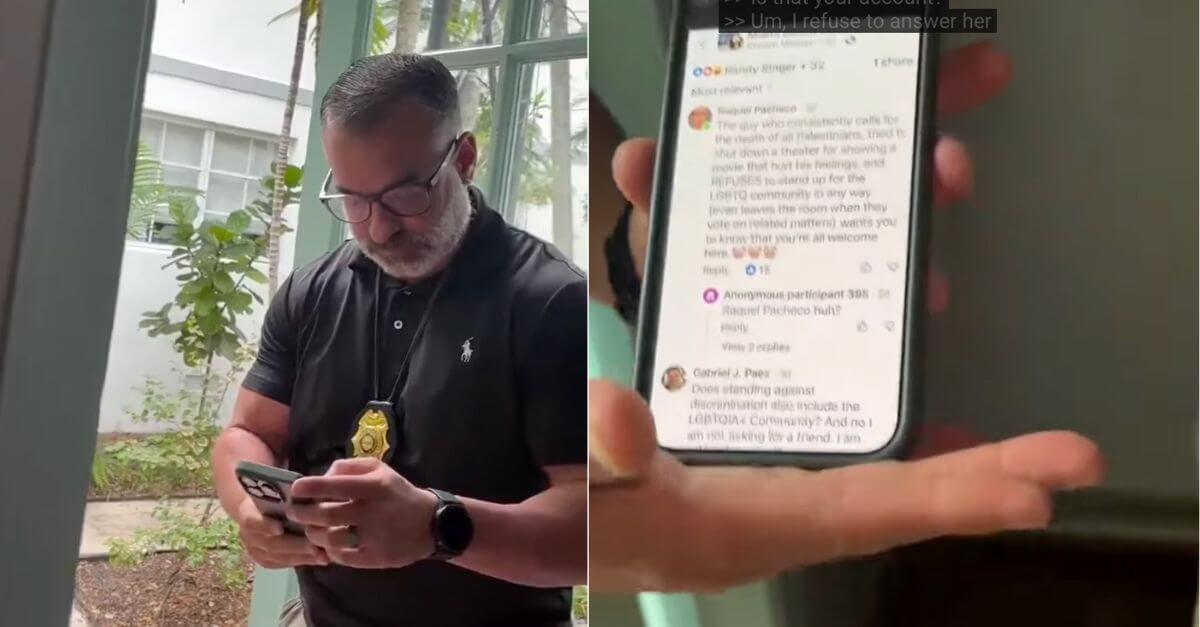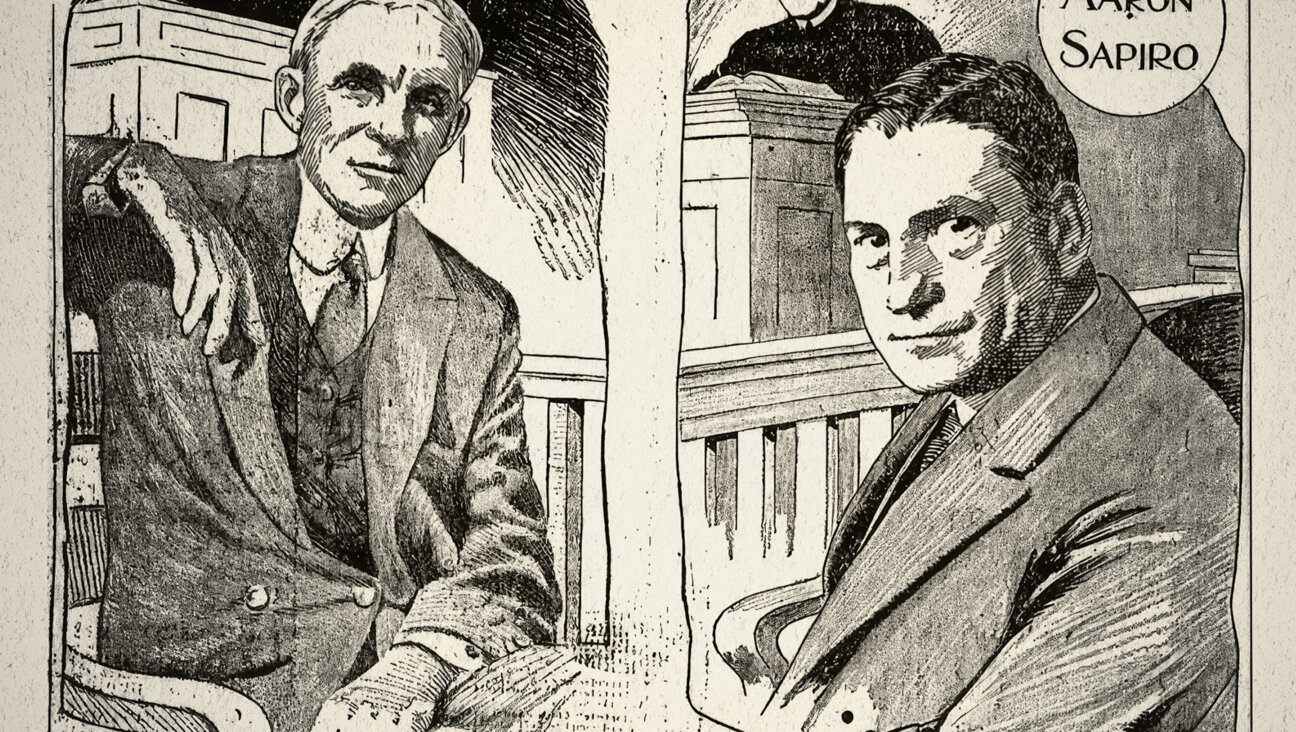At Long Last, Have You No Shame?
Seven years after the signing of the historic Swiss bank settlement, in which the Swiss banking industry agreed to give back money looted from Holocaust victims’ bank accounts, a handful of Florida-based Holocaust survivors and their hangers-on have filed an appeal to the United States Supreme Court that could undermine the settlement and threaten the larger process of Holocaust restitution. Their writ is frivolous and mischievous, and the plaintiffs should never have filed it. Now that they have, the justices should summarily reject it.
The complaint does not challenge the overall Swiss bank settlement, but merely one aspect of the mechanism by which the settlement funds are distributed. The original $1.25 billion settlement, in addition to returning the looted bank accounts, calls for payments to a variety of other Holocaust victims whose suffering ended up benefiting the Swiss banks. The federal judge overseeing the settlement, Edward Korman of the U.S. District Court in Brooklyn, created a complex mechanism to identify the individual victims and sort out their claims.
Under the plan he approved in 2000, most of the settlement, fully $800 million, was reserved for owners of looted bank accounts, the original focus of the case. Smaller sums were set aside to compensate the other groups: individuals forced to work as slaves for companies that stashed their profits in Switzerland; refugees turned back at the Swiss border, and individuals who owned property that was directly looted by the Nazis, then converted to cash that ended up in Swiss banks.
So far, more than $875 million has been distributed to some 400,000 victims of Nazism and their heirs around the world, including Roma and gays as well as Jews. And the payout is picking up speed; the banks, after years of stonewalling, have begun giving out the account information that victims need to find their property, and applications are rolling in at an increasing clip.
The knottiest part of the settlement involves the compensation of the so-called Looted Assets Class, those whose property was simply stolen, converted to cash and stashed in a Swiss bank. The judge ruled that the group could theoretically include just about every victim of Nazism, millions of people in all, and that singling out those individuals whose property ended up in Switzerland would be nearly impossible. Instead, he invoked the legal precedent known as “next best,” under which funds won in a class action suit may be used to help the worst-off victims of the original injustice.
In this case, the judge ordered the creation of a $100 million humanitarian fund — later increased to $205 million — to provide emergency assistance to the neediest Holocaust survivors. Following a demographic study of survivor populations around the world, three-fourths of the fund was assigned to destitute survivors in the former Soviet Union, where the collapse of communism has left hundreds of thousands of elderly Jews without the barest means of survival. Another 12.5% was assigned to Israel and 4% to the United States, which has a large survivor population but a relatively low level of destitution.
It’s this last part of the agreement that’s been challenged. A Florida-based group that calls itself Holocaust Survivors Foundation USA has gone to court repeatedly to demand that the looted-assets fund be distributed on a geographic basis. The foundation argues that if the United States is home to up to 30% of the world’s survivor population (it’s not, but that’s a separate dispute), then 30% of the humanitarian fund should be spent in this country, regardless of the relative need of, say, poor survivors in Miami who can’t afford a new walker and poor survivors in Kiev who don’t have bread or shoes.
If all this sounds oddly familiar to our readers, it’s because we’ve reported it before. We shouldn’t have to spell it out again, but some folks don’t seem to get it.
The judge has repeatedly dismissed the Florida group’s various filings as “irrelevant,” “worthless,” “outlandish” and even “surreal.” Two appeals to the U.S. Court of Appeals have been rejected unanimously. Now they’ve taken their case to the highest court in the land.
Theoretically, everyone should be allowed his day in court. Even in a case like this one, where the plaintiffs’ legal case is as threadbare as their moral one, they are entitled to have their say. But they are playing with fire. The stakes are much larger than the few dollars they hope to gain.
Over the past decade, close to $7 billion has been handed over by Germany, Switzerland and other nations to settle their property debts to the victims of Nazism. The claims ranged from bank accounts to real estate, unpaid life insurance and stolen art.
It’s no accident that nearly every victory has emerged from a negotiated, out-of-court settlement. Except for a handful of cases, mostly involving individual paintings, nearly all the disputes involve decades-old claims by individuals who lost every shred of usable documentation in the flames of the Holocaust. The moral claims were indisputable, but the legal cases were shaky at best. That’s why the claims had languished for so long.
As Judge Korman has noted repeatedly, the Swiss case itself involved five different classes of claims, including bank accounts, slave labor and looted property, but only the bank-account owners would have stood a chance in open court. The rest were paid only because the banks agreed to settle.
Indeed, it’s theoretically possible that the whole structure of Holocaust restitution could collapse if the cases were forced back into court. The one major class-action suit that did go to court, a slave labor case against two German companies, was thrown out in 1999 by a federal judge in New Jersey because it had no legal merit. The judge, Dickinson Debevoise, wrote in a devastating, 90-page opinion that questions of restoring property and reconstituting a world devastated by World War II had been settled by treaty in the 1950s, following years of negotiation among the great powers. An individual court, he wrote, had no authority to unravel the postwar world order, no matter how grievous the apparent individual injustice. No legal authority suggests that any court would rule differently today. (A second slave-labor case in another New Jersey court was thrown out the same day on narrower grounds of long-expired deadlines.)
The Debevoise ruling has hung over every restitution negotiation since then. European governments negotiated anyway, because they faced the moral pressure of their wartime roles, coupled with the combined political pressure of Washington, Jerusalem and world Jewry. But the major agreements were reached ages ago, in the uncharted time before 2001, the intifada and the Iraq War. It’s not at all clear that the political and moral calculus operating in Europe in 1999 would look the same in 2006. On the contrary.
Needy survivors in the United States have many avenues of recourse, from Medicaid to their local Jewish federation to the ballot box. In Kiev and Minsk, 135,000 survivors have made it through the past six winters only because of the miracle of Judge Korman’s humanitarian fund. Once and for all, it’s time for the Florida foundation to end its harassment and let the work proceed unhindered.
















